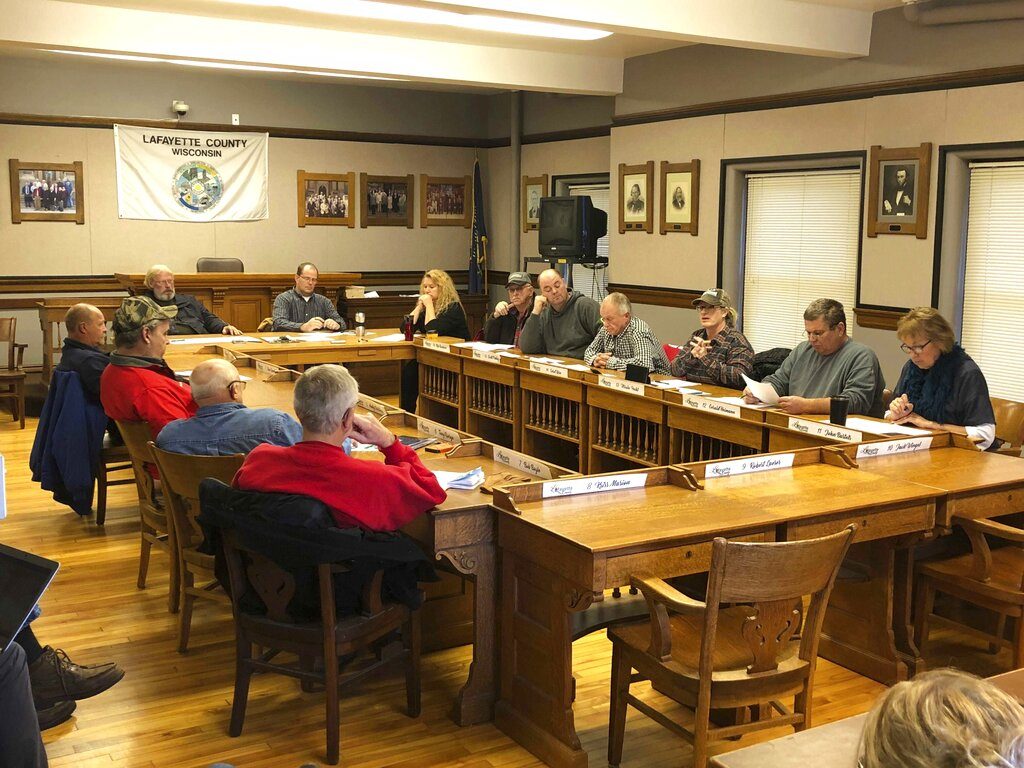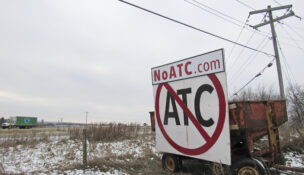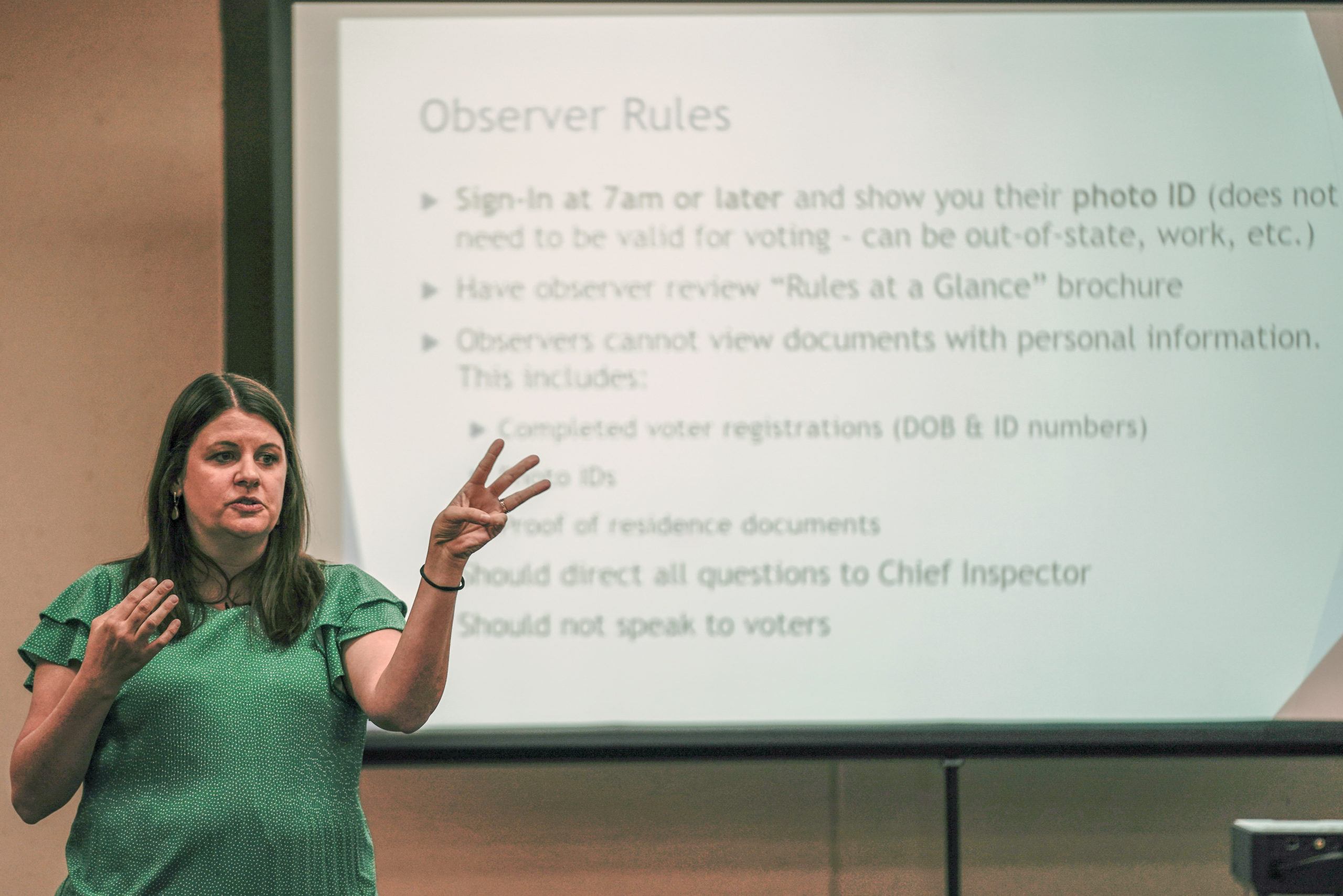Manure behind Wisconsin push to prosecute journalists
By: Associated Press//November 14, 2019//

By TODD RICHMOND
Associated Press
MADISON, Wis. (AP) — Behind all the anger and indignation over a southwestern Wisconsin board’s attempts to control reports on a well-water study is a simple story about manure.
Lafayette County officials tried to stifle discussion about results from the study, which has already found a handful of area wells are contaminated with fecal matter. They came up with a resolution that called for prosecuting journalists who report on study results without publishing information from the county verbatim.
The resolution also warned that county board members who speak to reporters about findings without permission from a review board would be punished.
The proposal left advocates of open government and experts in media law aghast and drew national headlines.
The county board ultimately tabled the resolution during a contentious meeting on Tuesday night. But the study is far from over and its implications still weigh heavily on local farmers and well owners. The findings could play a role in whether state regulators decide to impose costly manure-spreading restrictions in the region.
“I think acknowledging that our wells are bad is just difficult emotionally,” said Kriss Marion, a Lafayette County Board member who opposed the resolution. “As much as you hate regulation, don’t you want to know what the situation is?”
Conservation officials in Grant, Lafayette and Iowa counties approached the University of Wisconsin System in 2018 and asked for help in ascertaining the extent of well contamination in their region. Ken Bradbury, state geologist and director of the Wisconsin Geological and Natural History Survey at UW-Extension, said the officials were motivated by similar research that found a third of the wells in Kewaunee County in northeastern Wisconsin, on the other side of the state, had unsafe levels of nitrates and bacteria.
Grant, Lafayette and Iowa counties lie in what’s known as the Driftless Area, a region that went untouched by glaciers. The area is lined with ancient bluffs and ravines as well as porous soil susceptible to contamination.
Bradbury’s group along with federal researchers sampled 301 wells in November 2018 and 539 wells in April. They found that 42% of the wells tested in November and 27% of the April wells showed evidence of bacterial contamination or nitrate pollution. Nitrate originates from manure and fertilizer.
The researchers tested 35 of those wells and found 32, or 91%, were contaminated with fecal matter from both human and livestock sources. They plan to test three more 35-well subsets over the next year.
Meanwhile, the state Department of Natural Resources in September took the first steps toward drafting manure and fertilizer restrictions for “sensitive areas” with highly permeable soil. The DNR hasn’t defined those areas yet but environmentalists have been pushing to include southwestern Wisconsin on the list.
The agricultural industry has pushed back, saying the regulations could force farmers to rent or buy more land for spreading manure or to turn to expensive methods to deal with manure, such as injecting it directly into the ground. The DNR has estimated the rules could come with an annual total cost ranging from $50,000 to $5 million for stakeholders, including farmers and supporting businesses.
“I think there’s an assumption (the study could lead to more regulation),” said Grant County Board Chairman Robert Keeney. “It’s not just farmers. I think there’s an anxiety about well structure, anxiety about private outdoor waste treatment facilities, anxiety about CAFOs (factory farms).”
When media reports of the first round of testing results surfaced in September, Lafayette County officials felt headlines inaccurately conveyed that 91% of southwestern Wisconsin wells were contaminated. The officials alleged that someone had leaked false information to the media.
A resolution appeared in the county clerk’s office last week declaring that only the three county chairmen would be allowed to speak about any further study results. Journalists who report on the results without quoting a county news release verbatim would be prosecuted under the resolution and any county board members caught speaking to the press without permission from a review board would face discipline.
It’s not clear who drew it up. The county board met Tuesday to vote on the resolution despite media-law experts and open government advocates warning members that the proposl was unconstitutional and bad policy.
The meeting fell apart as opponents questioned where the resolution came from and asked the board to drop it. Chairman Jack Sauer, a farmer, told critics he has been spending 16 hours a day in the fields and was “tired of your crap.” The board ultimately tabled the resolution.
Sauer didn’t return phone messages seeking comment.
People in Lafayette County should embrace the study, Marion said.
“What an awesome opportunity for this county to have experts looking at our water,” she said. “Can we base regulation on this? Yeah. But we can get out in front of it and educate people.”
Legal News
- Audit launched of Wisconsin’s diversity efforts
- Federal appeals court approves high-voltage power line through Mississippi River refuge
- Dane County residents encouraged to weigh how to spend federal funds
- Jurors should have considered stand-your-ground defense in sawed-off shotgun killing, judges rule
- Money isn’t enough to smooth the path for Republican candidates hoping to retake the Senate
- Milwaukee election leader ousted 6 months before election in presidential swing state
- Former President Trump calls for arrest of special prosecutor Jack Smith
- Wisconsin judge dismisses lawsuit challenging state’s new wolf management plan
- Wisconsin Supreme Court issues opinion on Milwaukee Police officer fired over Facebook posts
- Gov. Evers Seeks applicants for Menominee County Register of Deeds
- Donald Trump calls Joe Biden weak on antisemitism, ignoring his own rhetoric
- Gov. Evers again calls Republican lawmakers into special meeting
WLJ People
- Power 30 Personal Injury Attorneys – Russell Nicolet
- Power 30 Personal Injury Attorneys – Benjamin Nicolet
- Power 30 Personal Injury Attorneys – Dustin T. Woehl
- Power 30 Personal Injury Attorneys – Katherine Metzger
- Power 30 Personal Injury Attorneys – Joseph Ryan
- Power 30 Personal Injury Attorneys – James M. Ryan
- Power 30 Personal Injury Attorneys – Dana Wachs
- Power 30 Personal Injury Attorneys – Mark L. Thomsen
- Power 30 Personal Injury Attorneys – Matthew Lein
- Power 30 Personal Injury Attorneys – Jeffrey A. Pitman
- Power 30 Personal Injury Attorneys – William Pemberton
- Power 30 Personal Injury Attorneys – Howard S. Sicula










